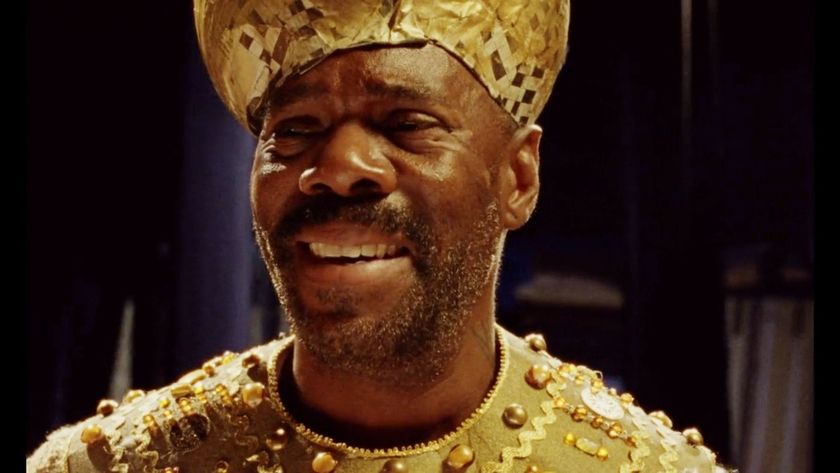It’s always entertaining when a film gets more publicity for the actors in it than the movie itself…Gigli was the film that Bennifer made, Mr. and Mrs. Smith the film that Brangelina made, and now, Rendition has been hailed as the film that ignited Reese Witherspoon and Jake Gyllenhaal’s clandestine love affair. But those gossip-mongers eager to analyze Reese and Jake’s sexual chemistry on screen are in for a big surprise. For one thing, they don’t have a single scene together. but more importantly the movie is one of the most heart-wrenching, dramatic films of the season …hardly the stuff a good romance is made of. Which is probably why Reese and Jake are on the rocks, but Rendition will be around for months to come.
Rendition is a truly harrowing, if a bit contrived, indictment of the government process known as Extraordinary Rendition; a circumstance in which the CIA has the power to extradite foreign nationals for interrogation in secret overseas prisons. As is the fad these days courtesy of Crash, the story follows several characters spanning two continents, all somehow bound to Anwar El-Ibrahimi (Omar Metwally), an Egyptian-American chemical engineer who is suspected of aiding an infamous terrorist cell. In a discreet North African town, there’s Douglas Freeman (Jake Gyllenhall), a conflicted CIA operative who is asked to supervise El-Ibrahimi’s cruel torture and Abasi Fawal (Igal Naor), the head of the secret prison who must also locate his rebellious daughter Fatima (Zineb Oukach) and her Islamic fundamentalist boyfriend Khalid (Moa Khouas). Back on the home front, the pregnant Isabella El-Ibrahimi (Reese Witherspoon) enlists the help of a politically connected old flame Alan Smith (Peter Sarsgaard) when her husband disappears without a trace. And representing the evil powers that be, there’s Corrine Whitman (Meryl Streep) the CIA’s Head of Terrorism who is willing to put justice before rights when it comes to national security.
What results from this mish-mash of characters are solid performances from the veterans and newcomers alike in a gripping tale that has all the elements of Babel, but with characters whose stories are actually related to one another by more than a gun. The plot compels as it forces the characters to make decisive decisions in a world where the line between right and wrong is far from black and white. As each character takes a stand, the film manages to remain surprisingly neutral – yes, it wholeheartedly questions the justification of torture but it doesn’t presume to know all the answers either. Along the way, there are frustrating stereotypes and actions that push the limits of believability but they work in the film’s favor forcing the audience to think about certain governmental policies.
Despite the emotional poignancy of the film and because of its explosive nature, Rendition will face an uphill battle with audiences and award-givers alike. Director Gavin Hood (of Tsotsi renown) underplays the drama to avoid melodrama, which can make moments of the script drag and the multi-layered structure means less time to develop each individual character. The Americans suffer most from their lack of screen time, while newcomers like Moa Khouas and Omar Metwally pack a huge range of emotions into their limited appearances. The film also introduces a structural twist at the end, which plays to a viewer’s sentimentality but doesn’t quite make sense. But the film’s biggest setback will be the time of release. Building off a train of recent post 9-11 political thrillers like Syriana, Babel and The Kingdom, Rendition may feel like too little too late for an audience sick of charged multi-faceted stories.
Ultimately, Rendition is the type of film that sparks controversy, whether it’s between those debating the government’s policies or those debating the film’s merits. Even if you walk out of the theater hating the movie, you won’t be able to stop talking about it, and that’s still a victory for the filmmakers.














